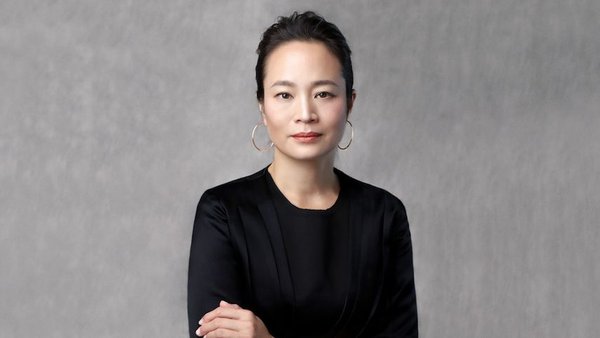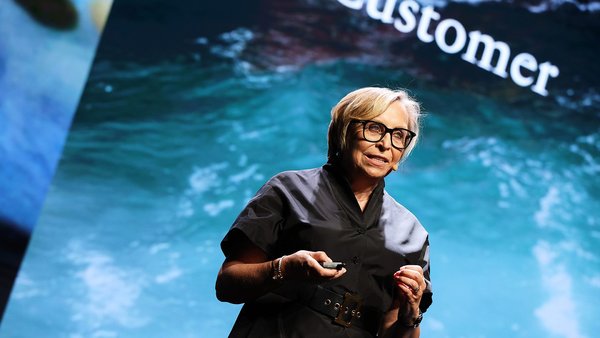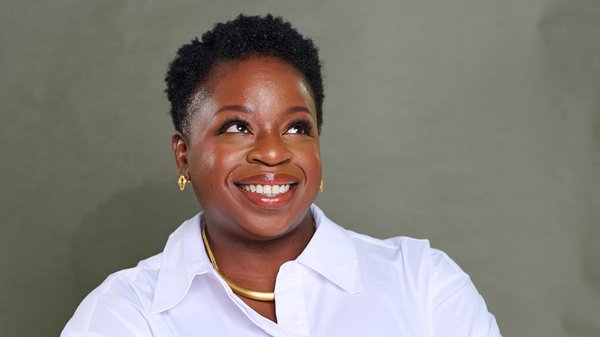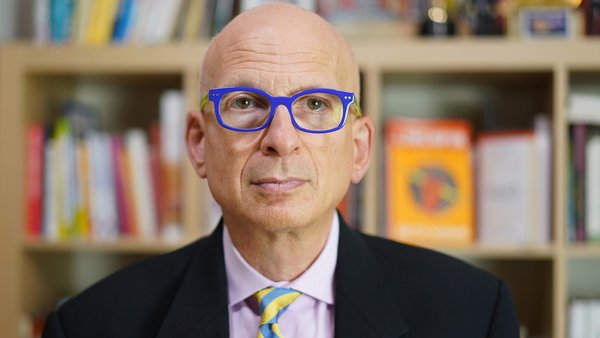Why emotion is key to advertising success /
Contagious speaks to ad legend Jacques Séguéla and Havas Paris Seven EVP Elisabeth Billiemaz
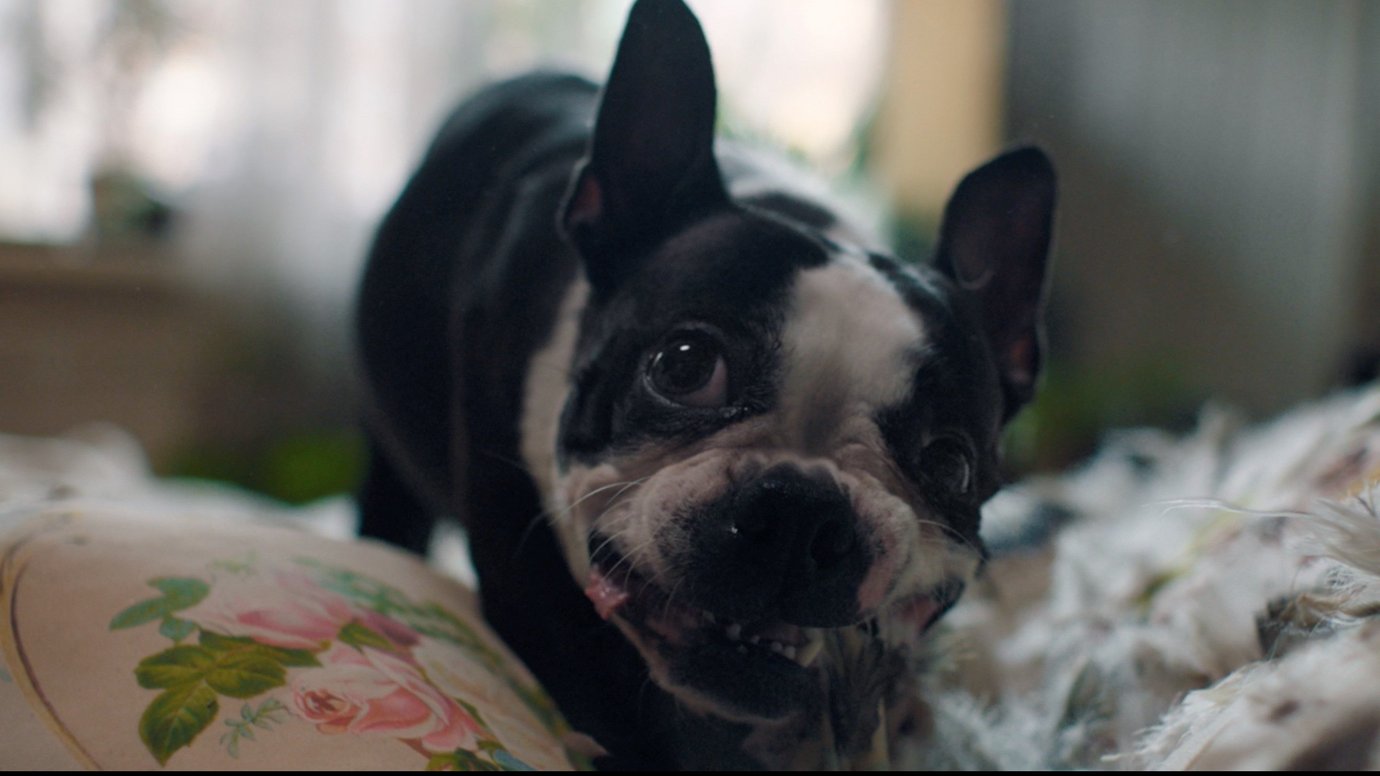
The description ‘advertising legend’ gets bandied about a lot in this industry. But Jacques Séguéla, the S in Euro RSCG, certainly fits the bill. Séguéla has authored more than 20 books on the business, including Don't Tell My Mother I Work in Advertising: She Thinks I Play Piano in a Brothel and after more than 55 years working in the industry, the consultant for the Havas Group is as outspoken as he ever was about the power of creativity to transform businesses.
We speak to Séguéla, and his colleague Elisabeth Billiemaz, executive vice president of Havas Paris Seven (the agency created following the merger of Human Seven and Havas Paris) about the danger of ‘emotion-free advertising’ and why we need ‘fewer tests and more testicles’.
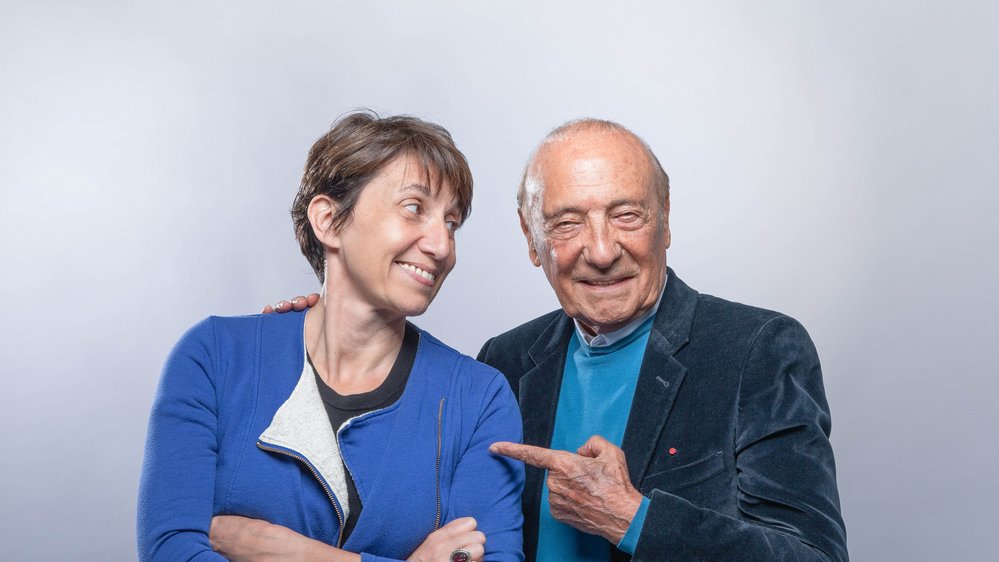
Jacques, you say that advertising in England starts in the head to go to the heart (too intellectual), that French and Latin advertising starts in the heart to reach the head (too emotional), that American advertising starts from the head to go straight to the wallet (too rational), and that the future is advertising that starts in the heart to go to the heart. But what does that advertising look like? Can you give us any examples of brands and agencies that have created work that starts in the heart and goes to the heart?
Séguéla: There are countless heart-oriented brands out there. My favourite video is from four years ago. It won a Gold Lion at Cannes for our client Lacoste. You see a couple seated in a café. He loves her, but he hasn’t yet declared his love. She’s very beautiful and he’s incredibly handsome. Suddenly, in the café, he moves his hand closer to hers. An allegory then takes over: he jumps from the top of a tall building into a void. In his passionate fall, the young woman’s hand grasps his. Then we’re back to the reality of the bar. With their two hands clasped together, they kiss each other. The slogan used is ‘Life is a beautiful sport.’ I pity all those who don’t relate emotionally to these sixty seconds of eternity. They’ve never experienced true love and never will.
Elisabeth, do you agree that the future is ‘advertising that starts in the heart to go to the heart’?
Elisabeth Billiemaz: More than ever, emotion is the key to success in our advertising campaigns, provided that it is correctly expressed and sincere. Given the multitude of messages out there, emotion ensures involvement and engagement from the person exposed to it. Our era has never yearned for meaning so deeply and it’s a real opportunity for brands to identify emotional drivers based on true insights. The recent OhMyDog campaign [that Havis Paris did for the French Federation of Cardiology] was a fantastic example in this regard. Using humour it tackles the issue of cardiovascular risks among elderly people (I’m not referring to you, Jacques!) while focussing on the emotional bonds forged between people and their pets.
Jacques, what do you mean when you say that money has no ideas, and that only ideas make money? Why do you think this is a message that the advertising industry needs to hear right now?
Séguéla: Business is business. But more than ever, advertising is a profession of ideas over money. As we undergo this new era’s assertion of technology as king, the catchphrase we hear is ‘the new media is data’. Yet that’s simply not true. The new media is ideas. Data without ideas is like a gun without cartridges: you pull the trigger and nothing happens. The more headway today’s digital Anschluss makes, the greater the need for creative talents, which are vital for soulless technology to thrive, playing the role of safeguards in a brave new world that’s forgetting what it means to be human. They will fight to put a human dimension back at the heart of communication, to make humanity central to brands.
Why is ‘testing’ the worst word in advertising vocabulary?
Billiemaz: There are different types of tests. Of course, pre-tests have no purpose when you’re looking for originality and want to take people into uncharted territory. Big ideas don’t require pre-testing. In an era where brands have to reinvent themselves, their boldness is needed more than ever and they shouldn’t have to hide behind pre-testing. Digital technology has nonetheless changed a lot of things. It’s thrown us into the era of testing and learning: post-tests in real time. Execution can be readjusted and that means real progress.
Séguéla: Under the yoke of test-fanatics, I’ve seen only affronts to the imagination, only still-born ideas, only hidden cowardice. On the one hand, I’m keen on post-testing, the only magistrates of advertising campaigns. But on the other hand, I’m closed to pre-testing. It’s in the public’s nature to fear newness, eschew difference and neuter originality. So what heresy it is to let the public determine the fate of an advertising campaign! It’s the job of the advertiser. It’s their responsibility. It’s their assignment. They just have to be brave enough to overcome the pervading reluctance when they’re convinced of the agency’s efficiency and proposal. There’s only one rule in the field: ‘fewer tests and more testicles’.
What is Havas’ vision of the future of advertising and creativity?
Séguéla: Our profession has been struck with full force by the omnipotence, appetite and enmity of the big four [Google, Amazon, Facebook and Apple]. We’re going through stormy times. But not at Havas. Optimists invented aeroplanes and pessimists invented parachutes. We’re staying on the plane. Our profession is going to split into two camps: promoters of runaway technology and promoters of persistent creativity. We’ve chosen our side.
Inventiveness, novelty and generosity are vital to the world’s equilibrium and therefore the equilibrium of brands. I see none of that in artificial intelligence. Creativity is to brands what oxygen is to people: their vitality. Emotion-free technology is the death of what makes us human. Ideas-free technology is the death of advertising. Our fight is a drive to inject blood and meaning into our brands’ DNA, to help them withstand daily attacks from their rivals and to protect them from being diluted in a flood of information overflow. Let’s not sink into an all-technology world. Let’s be hybrid, at the crossroads of technology and emotion. France is the country of harmony, of balance and of saying ‘at the same time’. So let’s cultivate our roots.
Billiemaz: Jacques is part of our roots. He put cars on a submarine, made a car drive along the Great Wall of China and associated Grace Jones – a 1980s icon – with Citroën. As long as we have the boldness of big ideas that engage people, creativity will always be the solution. The advertising profession is what builds major brands.

Do you agree that advertising agencies are less important to clients than they once were, and that, within companies, marketing is less important?
Billiemaz: Like in many sectors, we are today redefining our purpose and role in the ecosystem of advertisers. More than ever, we should act as guardians and business partners.
Séguéla: Only the poor-quality agencies are under threat. But not those that call everything into question and chose youth, modernity, innovation and cross-fertilisation and, above all, those who offer our clients all the ammunition of advertising.
What are the skills most needed for a creative person to thrive today? Are they any different to what they were in the past?
Séguéla: There’s no creation without passion. Passion transforms fear into bravery, paralysis into progress, banality into adventure and money into generosity. The more you love advertising, the more it will love you. The more you serve it, the more it will serve you. The more you glorify it, the more it will glorify you. I remember advertising before television, before computers, before the internet, before the smartphone, before digital data. There’s one thing that never changes: have ideas or change career.
What makes Havas Paris Seven a 'new-generation agency' ?
Billiemaz: The merger with Havas Paris has strengthened us and enlarged our playing field. More than ever, Havas Paris Seven is a ‘new-generation agency’, or a creative, agile hot shop able to support brands in all their dimensions and especially in their challenges regarding business (data, CRM, etc.), society (CSR, employer brand, etc.), reputation and so forth. HP7 is an agency augmented to support –with even more creativity –brands in their leadership acquisition and defence.
Do you think the advertising industry suffers from a problem with ageism? Jacques, what is your secret to a long-lasting career in this business?
Séguéla: Goethe said, ‘Genius means lasting.’ I don’t believe in the decline of age. I’m only wary of a decline in desire. The last time I went to see Bill Bernbach in New York, he’d just turned eighty. He was in his office, looking imperial at eight o’clock in the morning, rewriting a Volkswagen advertisement. There he was, our industry’s giant and genius, working as the copywriter of his life’s brand. He passed away a few months later. That day, I decided to set my retirement age to one hundred!
Want more of the same? /
We don’t just write about best-in-class campaigns, interviews and trends. Our Members also receive access to briefings, online training, webinars, live events and much more.
